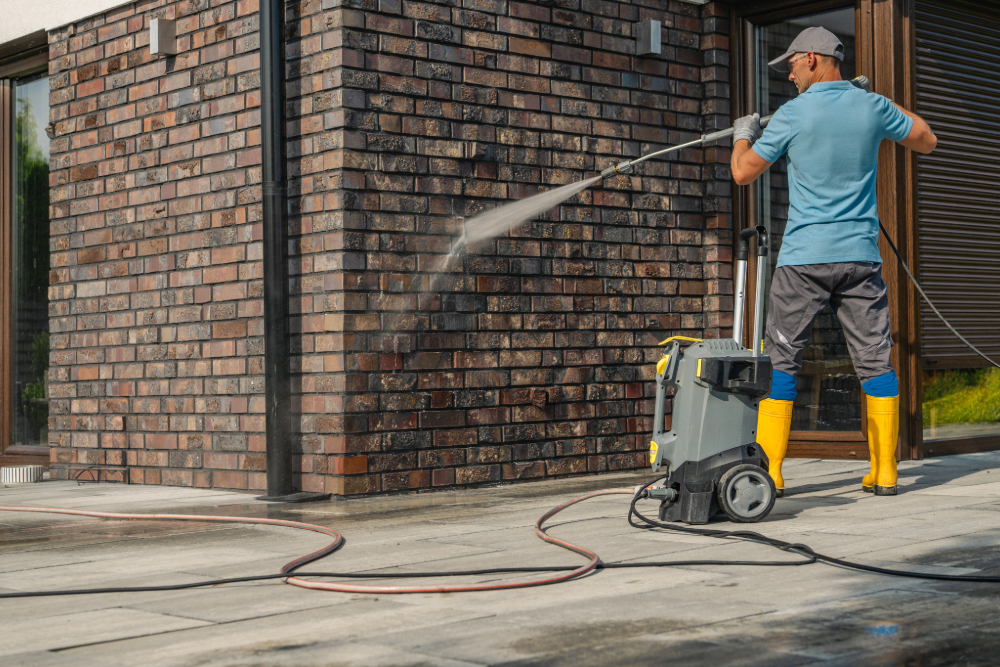8 Best Practices For Commercial Solar Panel Cleaning
Keeping your commercial solar panels clean is important for maintaining their efficiency and extending their lifespan. Solar panels are exposed to dirt, dust, bird droppings, and other debris, which can reduce their overall performance. For this reason, proper cleaning is important to boost energy output and prevent long-term damage.Here are eight best practices for commercial solar panel cleaning that will help you get the most from your investment and ensure maximum energy production.
Schedule Regular Cleanings
Regular solar panel cleaning is important for maintaining their performance and preventing the buildup of dirt, dust, and debris.
When debris collects on the surface, it blocks sunlight from reaching the photovoltaic cells, which reduces the panels' ability to generate energy. Cleaning your panels regularly makes sure they can capture the maximum amount of sunlight. This will boost energy output and prolong the life of the system.
Aim for at least two cleanings per year, but in areas with high dust, pollution, or frequent rainfall, you may need to clean them more often. Environmental factors such as pollution, bird droppings, or storms can accelerate debris accumulation, which impacts the panels' efficiency and power production.
Regular cleaning not only helps optimize performance but also avoids expensive repairs that can arise from neglecting proper maintenance over time.
Choose the Right Time for Cleaning
The timing of your solar panel cleaning is important to avoid potential damage. Early mornings or late afternoons are the ideal times for cleaning, as the panels will be cooler, reducing the risk of thermal shock.
When panels are exposed to direct sunlight for long periods, they heat up, and cleaning them while they are hot can lead to cracks or other forms of damage. The sudden temperature change from cold water on a hot surface can stress the material, weakening the panels over time.
Cleaning during cooler times of day helps preserve the integrity of the panels and confirms a more effective cleaning process. This also allows the cleaning solution to work more efficiently without drying out too quickly, so that dirt and debris are properly removed.
Furthermore, cleaning during cooler hours reduces the risk of water spots forming and keeps the panels streak-free and performing at their best.
Use Proper Tools and Equipment
To prevent scratching or damaging your solar panels, it is important to use the right tools. Soft brushes or microfiber cloths are ideal, as they gently clean the surface without causing any scratches or abrasions.
These materials are specifically designed to lift dirt and dust while being safe on delicate surfaces. In addition, using gentle, eco-friendly cleaning solutions helps preserve the integrity of your panels.
Harsh chemicals or abrasive materials can strip away protective coatings and lead to long-term damage and reduced efficiency. Always avoid using abrasive scrubbing tools or strong solvents, as these can compromise the protective layer that shields your panels from the elements.
With the right tools and solutions, you confirm that your panels remain in excellent condition for years to come.
Inspect Panels for Damage
During the cleaning process, it’s a good opportunity to inspect your solar panels for any potential damage. Look carefully for cracks, loose connections, or any signs of wear that could affect their performance.
Pay attention to any visible damage, such as chipped glass or discoloration, which could indicate underlying issues. Also, check the wiring and connections for any loose or frayed areas that could cause a decrease in efficiency or even lead to system failure.
If you spot any problems, it’s important to contact a professional as soon as possible for repairs. Early detection of issues allows for timely fixes, preventing more significant and costly repairs in the future. Catching these problems early not only saves you money but also confirms that your panels continue to operate at optimal efficiency.
Avoid High Water Pressure
High water pressure can be damaging to your solar panels, as it has the potential to loosen seals, cause leaks, or even dislodge components, leading to costly repairs.
To avoid this, always use a low-pressure water stream when cleaning your panels. A hose with a low-pressure nozzle is an excellent tool for gently rinsing off dirt, dust, and debris without putting any strain on the panels.
The key is to maintain a controlled, gentle flow of water that effectively removes contaminants without risking damage. High-pressure washing might seem effective, but it can compromise the integrity of your panels and their protective seals, reducing their lifespan.
Clear Debris Around the Panels
Don’t just focus on cleaning the panels themselves. Pay attention to the area surrounding them as well.
Leaves, branches, dirt, and other debris can accumulate around the panels and block sunlight from reaching them. This will significantly reduce their performance and energy output. Even small obstructions, like leaves or fallen twigs, can cause shadows that limit the amount of light absorbed by the panels. Regularly check the space around your solar panels to confirm there are no obstructions that could interfere with their efficiency.
Clearing away debris not only maximizes energy production but also helps prevent any potential buildup that could damage the panels over time. Overgrown vegetation or dirt can create areas of excessive moisture and cause rust or corrosion on your panels’ frames.
Keeping the area clean confirms your system functions optimally, avoids unnecessary wear and tear, and helps protect the overall longevity of your solar energy system.
Clean Panels During Dry Weather
It’s best to clean solar panels on a dry, calm day to achieve optimal results. Wet weather or strong winds can create challenges by causing debris to blow back onto the panels shortly after cleaning. As a result, it becomes harder to maintain their cleanliness.
Cleaning panels during damp conditions can also lead to water spots or streaks, as the water evaporates too slowly. On a dry day, the panels will dry faster, which will help prevent mineral buildup or water stains.
A dry environment also confirms that the cleaning solution has the time it needs to break down grime effectively without being diluted by rain. Choosing the right weather for cleaning not only enhances the appearance of the panels but also helps maintain their efficiency and longevity.
Furthermore, dry conditions reduce the risk of mold or mildew buildup, which can form when moisture lingers on the panels for too long. This will help you keep your solar system in top condition for a longer period.
Hire a Professional for Best Results
While cleaning your solar panels yourself is certainly an option, hiring a professional cleaning service is often the more efficient and safer choice.
Professionals come equipped with specialized tools designed for the job, including low-pressure washers, soft brushes, and eco-friendly cleaning solutions. Their experience confirms that the cleaning is done thoroughly without causing any damage to your panels.
They also know how to properly handle the panels, taking precautions to avoid scratches, broken seals, or electrical issues. With their expertise, you can trust that your solar panels will remain in optimal condition, improve performance, and extend their lifespan. Additionally, professionals can spot potential issues that may not be obvious during a DIY cleaning, saving you from costly repairs in the future.
Regular commercial solar panel cleaning helps keep your panels performing well and extends their lifespan. Scheduling cleanings, using the right equipment, and checking for damage are all key steps in maintaining your system.
At White Dove Windows, we specialize in window and solar panel cleaning services. Our team uses top-tier equipment and eco-friendly solutions to keep your panels clean and working at their best. Contact us today for more.




